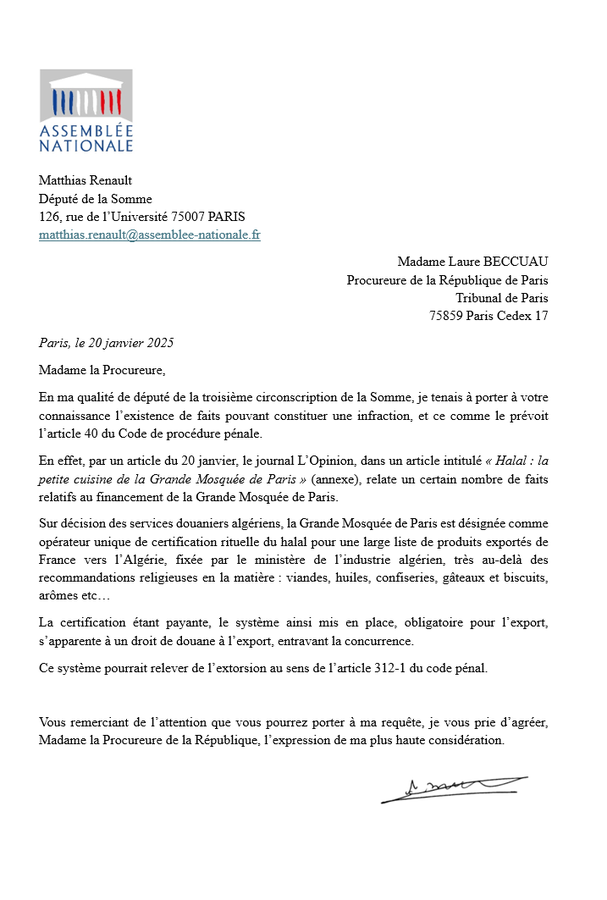Grande Mosquée de Paris Accused of Monopolistic Halal Certification System
The Grande Mosquée de Paris faces allegations of creating a monopolistic halal certification system with Algerian support. Reportedly generating €5 million in 2024, this mandatory tax on EU exports to Algeria raises concerns about transparency and governance. Legal consequences loom, highlighting tensions in France-Algeria relations and impacting the mosque's reputation.

Paris, France – The Grande Mosquée de Paris is facing serious allegations of establishing a monopolistic system for halal certifications, reportedly with the support of Algerian authorities. This revelation comes amid rising tensions between Paris and Algiers, as detailed in an article published on January 20, 2025, by L'Opinion.
According to the report, the mosque has been accused of implementing a mandatory certification system that acts as a tax on all products exported from the European Union to Algeria. This system has purportedly generated around €5 million in 2024 for merely affixing a logo on various food items such as yogurts, cakes, and baby foods.

French authorities claim they were not informed about this mechanism, which is officially intended to finance Muslim worship but lacks transparency regarding the allocation of funds. Matthias Renault, a National Rally deputy from the Somme, announced that he would file a complaint with the public prosecutor under Article 40 of the penal procedure following these revelations.
Renault stated, “This system could be considered extortion.” He elaborated that based on decisions made by Algerian customs, the Grande Mosquée de Paris has been designated as the sole operator for halal certification for a wide range of products exported from France to Algeria. This designation exceeds religious recommendations and effectively creates an export duty that hampers competition.
If these allegations are substantiated, they could lead to severe legal consequences, including up to seven years in prison and fines of €100,000 for those involved in extortion under Article 312-1 of the penal code.
The situation has prompted further scrutiny of the relationship between France and Algeria, particularly regarding economic exchanges and religious practices. As this controversy unfolds, it raises critical questions about transparency and governance within organizations responsible for halal certification in France.
The Grande Mosquée de Paris has historically played a significant role in certifying halal products for Muslim consumers in France and abroad. However, these recent allegations may jeopardize its reputation and operations within the halal market.







